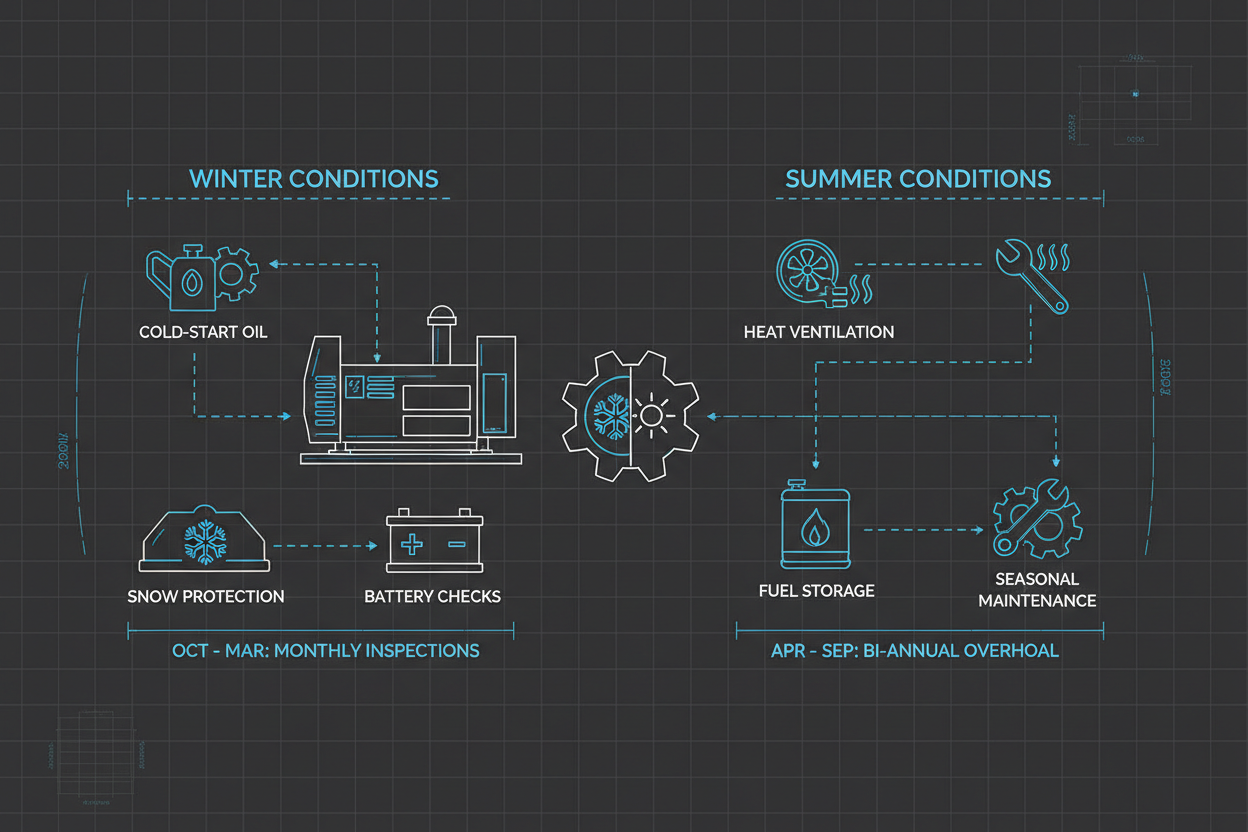Seasonal Tips to Keep Your Home Backup Generator Ready All Year
Seasonal maintenance ensures your home backup generator performs reliably during storms, heat waves, and winter outages. Adjusting care routines by season helps protect the engine and fuel system.
Weather changes affect oil viscosity, fuel stability, and starting performance. Proper planning improves reliability during unexpected emergencies.

Winter Preparation Checklist
Cold temperatures thicken oil and reduce battery performance. Preparing the generator for winter ensures smooth starts during freezing outages.
- Use winter-grade oil for easier cold starts
- Charge the starter battery monthly
- Add stabilizer to stored gasoline
- Use open-sided shelters for snow protection
- Allow extra warm-up time before applying load
Summer Preparation Tips
Heat increases stress on engines and reduces fuel storage life. Proper ventilation and fuel care are necessary for safe summer operation.
- Improve airflow around the generator
- Inspect cooling vents for debris
- Store fuel in shaded outdoor areas
- Check spark plug condition before storm season
Storm-Season Readiness
Severe weather often leads to multi-day outages. Preparing before storm season ensures reliable operation when demand is highest.
- Run a monthly test cycle
- Inspect cords and transfer switches
- Prepare multiple fuel types if possible
- Verify shelter condition before heavy rain
Year-Round Best Practices
Consistent care throughout the year extends generator lifespan. Routine checks reduce mechanical wear and prevent startup problems.
- Inspect oil level monthly
- Replace air filters as needed
- Keep generator stored in a dry, ventilated area
- Record test dates and maintenance tasks
Conclusion
Seasonal preparation keeps your home backup generator dependable all year. Adapting maintenance to temperature and weather ensures safe operation during any outage.
Related Guides
- Home Backup Generator Pillar Page
- A1. Homeowner Benefits
- A2. Sizing Basics
- A3. Connection Methods
- A4. Fuel Planning
- A5. Use Cases
- A6. Noise Benefits
- A7. Clean Power
- A8. Fuel Efficiency
- A9. Safety Placement
- A10. Maintenance
- A11. Essential Devices
- A12. Runtime Guide
- A13. Sizing Guide
- A14. Household Protection
